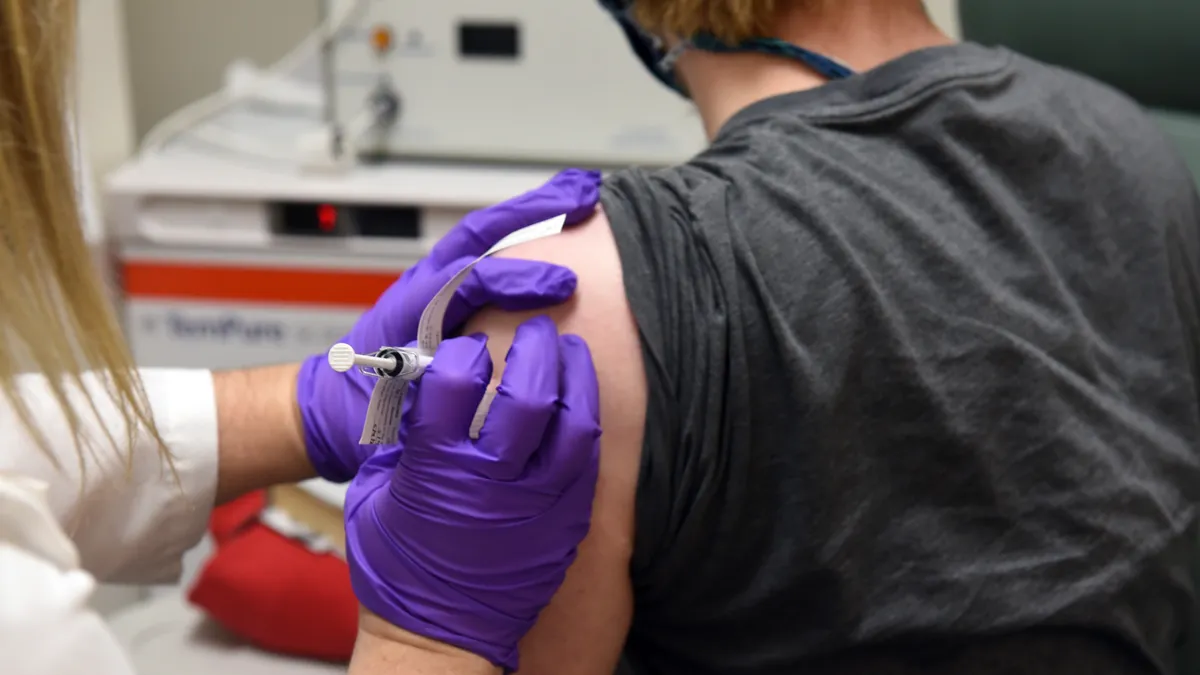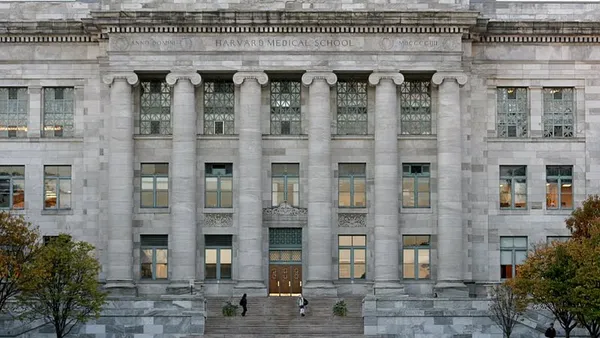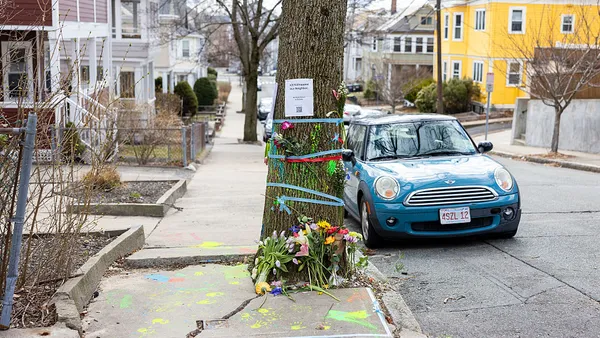Dive Brief:
- Rutgers University says it will require students who enroll next fall to get vaccinated against the coronavirus. Employees are "strongly urged" to do so.
- Officials cited "assurances from the federal government" that vaccines will be widely available by May as part of the reason for the decision.
- It's the first known institution to mandate the vaccine for students, but public health and legal experts predict more colleges will follow.
Dive Insight:
Now that Rutgers has issued its mandate, "there'll be increased pressure on schools to take a stance and to be transparent about what they plan on doing in the fall," said Lynn Pasquerella, president of the Association of American Colleges and Universities.
Pasquerella said AAC&U members are in the early stages of thinking about what a vaccine mandate would entail, though she expects a number of them to follow Rutgers' lead.
In recent weeks, many colleges have said they plan to hold fall classes mostly or entirely in person. However, their plans hinge on the public health crisis being under control.
Coronavirus case counts have decreased significantly from their peak this winter, and the Biden administration has pledged the vaccine would be available to all adults by May. But everyone won't be vaccinated by then — current projections indicate that's still months away. And a recent uptick in cases is worrying some public health experts.
Whether colleges can require the vaccine is new legal territory. The U.S. Food and Drug Administration has approved three vaccines under an emergency use authorization, which is more limited than a full approval. Rutgers confirmed it would require the vaccine under EUA.
The federal statute authorizing the FDA to issue EUAs suggests that vaccines with them cannot be mandated, meaning such a requirement could spur a legal challenge. However, a school responsible for students' health and safety "would have a stronger argument" that the vaccines' EUA status wouldn't prevent a mandate, said Robert Field, a law professor at Drexel University, in Pennsylvania.
And the law doesn't specifically mention colleges, Dorit Reiss, a law professor at the University of California Hastings College of the Law and a member of the Vaccine Working Group on Ethics and Policy, said in an email. While there aren't many legal challenges involving colleges mandating vaccines, Reiss noted, those that exist suggest institutions "are on very strong grounds" doing so.
Offering an online instruction option for students could help colleges protect against legal challenges if they opt to mandate the vaccine, Field said.
Colleges already require students — with some exceptions — to get certain vaccines, but they haven't mandated one with an EUA.
"This is an unusual circumstance in that regard," said Anita Barkin, co-chair of the American College Health Association's COVID-19 Task Force.
Wider vaccine availability, particularly for younger people, has "accelerated the conversation" around whether colleges would add the COVID-19 vaccine to their immunization requirements, Barkin said.
Spring is also a key point in the admissions cycle, as students are deciding where they'll enroll for the fall. "Waiting for approval may mean students will not know, when they make the decision, if a vaccine is mandated, and that may be unfair," Reiss said. "Announcing early gives students information they need."
Requiring the vaccines for faculty and staff follows a different legal framework, Reiss said, and could include negotiating with employer unions or going through a shared governance process. Already at least one worker, at a detention center in New Mexico, has challenged an employer's COVID-19 vaccine requirement.















